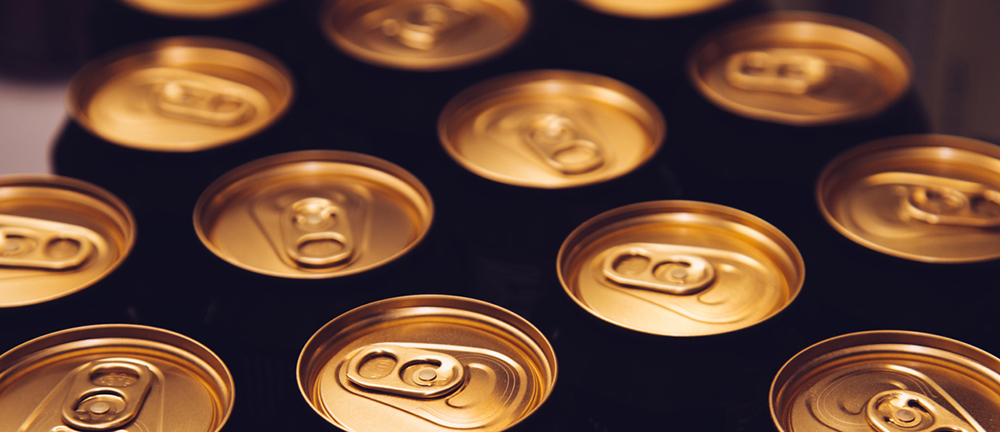Craft Brewers Canning More Than Bottling – Here’s Why

Craft Brewers Canning
The Craft Brew Industry is Changing Rapidly, One Can at a Time
Gone are the days where you might have associated canned beer with tried and true classics like Coors, Budweiser and Miller Genuine Draft. In today’s brewing landscape, draught beer, according to the Brewer’s Association, represents roughly 41.4% of annual beer production. In 2016, cans represented 16.7% and bottles 41.9%. But the craft beer industry is steadily transforming its packaging style, making the transition from bottle to can. This transition is revolutionizing the industry, but why the switch? As a provider of multiple food-safe products such as hydraulic oil, grease, seamer oil, heat transfer fluids and cleaners, in this article we explore the changing trend from bottle to can in the world of craft beer and the industry as a whole.
Beer – The Backstory
Humans have been consuming beer for thousands of years – according to archaeologists and historians, between 5,000 and 5,400 years. The first confirmed evidence of early beer came from the Zagros Mountains in Iran, where a jug coated in “beerstone,” a deposit of organic and inorganic compounds resulting from the brewing process was found. Next to water and tea, beer is the 3rd most consumed beverage on earth, uniting cultures around the globe along a spectrum of merriment to debauchery. Traditionally, beer is brewed from a combination of cereal grains that can include malted barley, wheat or rice, and nowadays most beers are brewed with hops and additional flavorings that range from orange peel to wildflower honey to vanilla bean and a whole host of other imaginative flavor profiles. Home brew technology allows for a natural carbonation process, while commercial brewing replaces the natural process with what is called “forced carbonation” or “force-carbing,” directly infusing CO2 into the beer to expedite the brewing process.
The Switch from Bottles to Cans
There are many reasons why craft brewers canning is more and more the trend, moving further and further away from bottling as the preferred packaging method. The primary reasons range from economic to convenience, outlined below.
Safety, Convenience and Ease of Transport – Nobody likes broken glass, especially along the banks of a river, at the beach or while you’re out enjoying nature on a camping trip. Broken glass is a buzzkill, which is one of the main plus factors of drinking beer from a can. Cans are lighter to carry, won’t break and shatter, they allows for easy transport and stackability. In general, cans cost less than glass bottles to ship, which lowers the cost for craft brewers canning and ultimately the consumer since glass is heavy and more cumbersome to transport.
Environmentally Preferable – When it comes to recycling, aluminum wins out over glass in terms of return on investment, and with shipping, aluminum is significantly lighter, which cuts down on the overall carbon footprint of beer. This sits well with the general craft beer ethos of sustainability and environmental responsibility – another reason why the transition from bottle to can seems to be relatively seamless. According to the American Craft Beer Association, as the beer industry technology evolves, some cans are now re-sealable, which makes the turnaround from shelf to consumer and then back to the shelf much quicker and reduces the need for manufacturing so many new cans.
Keeping Things Fresh – Although beer has been brewed for centuries in ceramic crocks and darkly colored glass bottles, cans are proving to be excellent containers that eliminate the damaging effects of light and oxygenation. Even the most stalwart brew master purists are changing their tunes around the freshness and longevity available through the process of canning over bottling. Many breweries are moving away from natural carbonation and secondary fermentation, known as “bottle conditioning” and are embracing cans and more force carbonation. Despite skepticism on a brewer’s ability to really master a beer’s flavor profile and effervescence through canning, brewers are working the chemistry to create some truly exceptional ales with just the right fizz, aroma and taste.
Efficiency is Key – For industrial craft brewers canning, making this choice over bottling is significantly lowering their business’ bottom line. Canning lines are far less space intensive than bottling operations and the warehousing and transport of cans proves to be more cost effective. Bottles are fragile and require heightened care along with paperboard holders, while cans can be handled less gracefully.
Craft Brewers Canning – The Bottom Line
The trend in beer canning as the preferred packaging method seems to be growing, and it has even expanded beyond the craft brew world into the wine scene, where consumers opt for ease of transport and lowered cost over the familiarity of a glass bottle. Can proponents say that packaging in this way allows for less degradation from light and oxygen, more room for design on the can’s surface, more ease and safety in transportation, and ease of consumption for the backcountry and near rivers and beaches. Cans are easier and cheaper to ship, easier to recycle and they take up a lot less space in a warehouse. The signature artwork of the craft brew world remains with the transition to cans, now printed directly onto the aluminum, and many beer snobs even boast that the flavor capabilities of canned beer are superior to those in bottles. Not everyone is a fan of the can, and opponents state that drinking from aluminum imbues a metallic taste, but whether you’re an IPA lover, a porter enthusiast or a plain amber type, get your beer koozies ready. The can, my friends, is apparently here to stay.
Contact an SCL Consultant Today
In a wide range of industrial sectors, SCL is committed to being the number one logistics and solutions provider for the products that protect and optimize the machines that keep our country moving. We pride ourselves on remaining at the forefront of industry trends and technological innovations, and as the market continues to evolve, we are committed to providing extensive product and industry knowledge and total performance satisfaction for our customers. For information on how we can assist your company in choosing the optimal products at a competitive price, contact an SCL consultant today.
